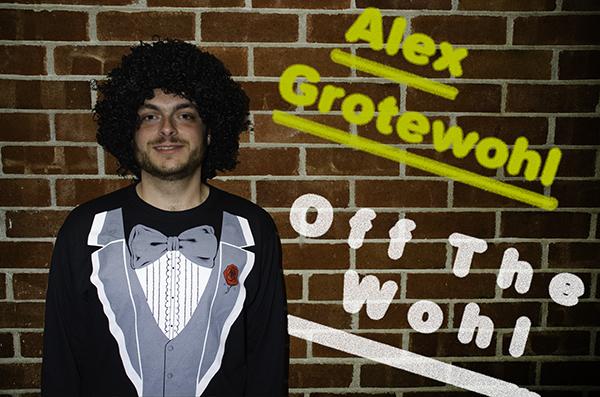Off the Wohl: Privatizing city’s parking may keep Kings in Sac
February 22, 2012
So, you want the Kings to stay in Sacramento? How much is it worth to you?
The Sacramento City Council unanimously passed a motion on Feb. 14 to go for broke and move forward with a plan to privatize the capital’s parking meters and lots in an attempt to raise funds necessary to keep the NBA in town.
While the vote only narrowed down the list of corporate suitors for the deal ahead of Tuesday’s final vote, the sale of parking assets could raise more than half of the money it would take to erect a new sports complex and keep the Kings from moving south to Anaheim or north to Seattle.
Needless to say, the affect on taxpayers would be considerable.
According to a Dec. 9, 2011 article in the Sacramento Bee, parking pulls in about $9 million per year for the city and immediately that revenue would be gone. And seeing as how some proposals are for as long as 50 years, a city budget already well into the red could be affected for decades to come.
In the coming fiscal year, the City of Trees is looking at park closures due to lack of money, as well as cuts to city fire and police services. The city council’s plan would remove a known source of income and replace it with a big, fat question mark. When the cost of parking rises, the additional funds wouldn’t wind up in government coffers, but in the pockets of corporate big-wigs.
This amount of risk might be appropriate for the Maloof family’s Palms casino resort in Las Vegas, but to some Sacramento residents it may seem out of place in City Hall.
This strategy has been tried before. In December 2008, Chicago gave up control of the city’s 36,000 parking meters to a group led by Wall Street giant Morgan Stanley for more than $1 billion. Much like it would in Sacramento, the deal made it possible for Chicago’s government to avoid raising taxes to close budget gaps.
In the time since the deal was made, though, the cost of parking in Chicago has nearly doubled, leading to general dissatisfaction among residents. In the months after privatization, reports of broken meters because of so many quarters being poured in were rampant.
Also, it’s estimated Chicago could have made much more money had it simply held on to its parking.
There’s no question keeping the Kings in Sacramento is important to the city and its mayor, former NBA All-Star Kevin Johnson. The team lends respectability to a city now synonymous with the dysfunctional nature of California government.
Johnson’s keep-the-Kings task force, Think Big, also recently published a study in which it estimated a new arena could bring in as much as $7 billion over the next 30 years between increased activity for local businesses and additional taxes.
Forecasts of this nature are inherently inaccurate, though, since it’s difficult to predict the business climate several years down the road when the stadium would be completed.
Cities like Baltimore and Cincinnati, for example, have lost their proverbial shirts by assisting in the financing of new stadium construction. Money could be lost for any reason, ranging from poorer-than-expected attendance to failure to attract other occupants or events during basketball’s off-season.
Although unlikely, a better solution might be a temporary hike to city sales taxes. While it might be easy for a short-term increase to become permanent, at least Sacramento wouldn’t be giving away a solid and easily-adjustable source of revenue.
It’s true retaining a major league sports team should be important to every Sacramento resident, and each one of us will have to ante up. Let’s just hope we’re not mortgaging our future on a bad hand.
Alex Grotewohl can be reached at [email protected].























































































































